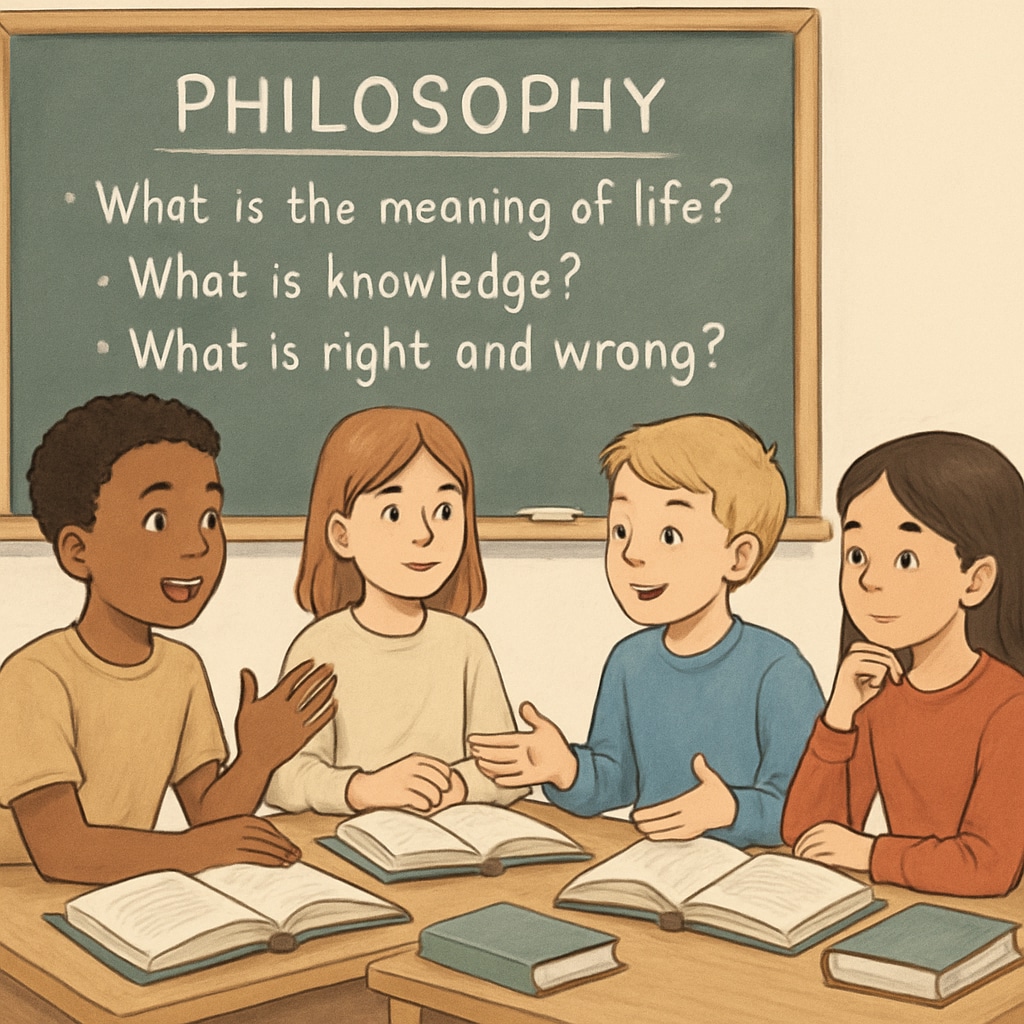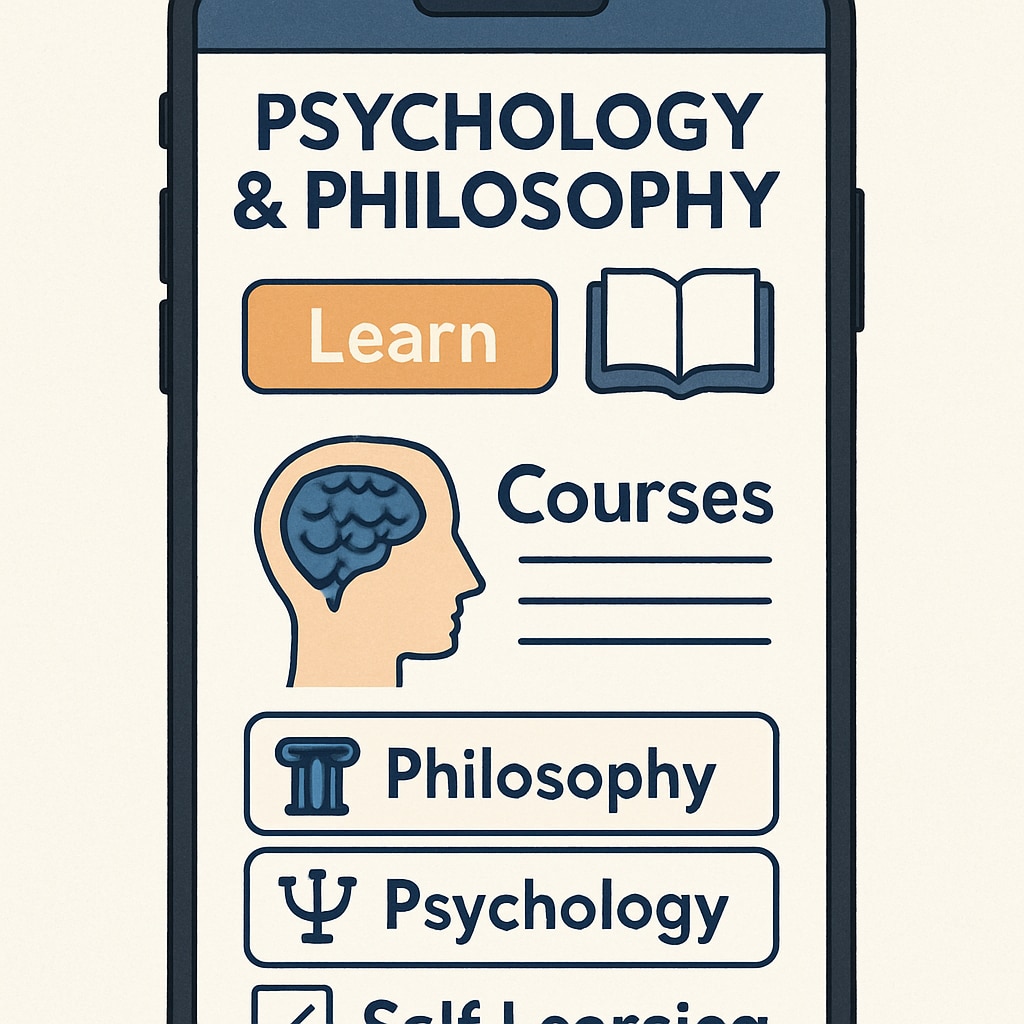In today’s rapidly evolving world, the need for critical thinking and self-awareness has never been more vital. Introducing subjects like psychology and philosophy at the K12 level can foster these essential skills while offering students tools to better understand themselves and the world around them. By leveraging psychology, philosophy, and self-learning resources, educators and parents can provide accessible and engaging ways to cultivate young minds without relying solely on formal academic structures.
Why Psychology and Philosophy Are Essential for K12 Students
Psychology and philosophy are often overlooked in early education, yet their benefits extend far beyond the classroom. Psychology helps students understand human behavior, emotions, and mental processes, enabling them to navigate interpersonal relationships and manage their own emotions effectively. Philosophy, on the other hand, offers tools for reasoning, ethical thinking, and exploring life’s big questions. Together, these subjects encourage students to think critically, challenge assumptions, and develop a deeper sense of self-awareness.

For example, introducing basic psychological concepts such as emotional intelligence (EQ) or mindfulness can help students manage stress and build resilience. Philosophical discussions about ethics or the meaning of happiness can inspire curiosity and improve decision-making skills. These foundational lessons prepare students for more complex challenges in adulthood.
Practical Ways to Incorporate Psychology and Philosophy
While integrating these subjects into a formal curriculum may be challenging, there are numerous non-academic resources that make learning accessible and engaging for students. Here are some practical methods:
- Books and Literature: Works like “Man’s Search for Meaning” by Viktor Frankl or “Sophie’s World” by Jostein Gaarder provide age-appropriate introductions to psychology and philosophy.
- Podcasts and Audiobooks: Platforms like Spotify and Audible host educational content tailored for young learners, such as the “Philosophy Bites” podcast or mindfulness-focused audiobooks.
- Interactive Apps: Apps like Headspace (for mindfulness) and Coursera (offering beginner psychology courses) are excellent tools for self-learning.
- Games and Activities: Board games like “The Game of Life” or role-playing activities can simulate ethical dilemmas and teach problem-solving skills.
- Discussion Groups: Organize small group discussions around philosophical topics or psychological theories to encourage peer learning and reflection.

In addition, educators can collaborate with parents to create environments where these subjects are naturally explored. For example, family movie nights featuring storytelling with psychological or philosophical themes can spark meaningful conversations.
Recommended Self-Learning Resources for Students
To make these subjects approachable for young learners, curated resources play an important role. Below are some top recommendations:
- Mindfulness on Wikipedia: A comprehensive overview for beginners.
- Ethics Philosophy on Britannica: Detailed insights into philosophical ethics.
- TED Talks: Talks like “The Power of Vulnerability” by Brené Brown and “What Makes a Good Life?” by Robert Waldinger introduce psychological and philosophical concepts in an engaging format.
- Online Courses: Platforms like Khan Academy and edX offer beginner-friendly courses tailored for younger audiences.
- Community Libraries: Many libraries host free workshops or reading groups focused on self-development topics.
By exploring these accessible resources, students can begin their journey into understanding the complexities of human thought and behavior, paving the way for lifelong learning.
Conclusion: Starting Small but Thinking Big
Introducing psychology and philosophy at the K12 stage doesn’t require an overhaul of traditional education systems. Instead, by utilizing psychology, philosophy, and self-learning resources, educators and parents can create opportunities for exploration and growth. Whether through books, apps, or conversations, these subjects provide the foundation for developing critical thinkers who question, reflect, and innovate.
As a result, students not only gain knowledge but also cultivate the emotional intelligence and ethical reasoning needed to thrive in an increasingly complex world. The earlier we empower young minds with these tools, the brighter their futures will be.


